Welcome to issue 80 of the Call to Comms!
This week, discover the story of Ms Noro, a French teacher in Madagascar, and of Mireille, who experiments with different ways of learning through digital technologies.
Meet Ms Noro and Mireille
This month, we met Mrs. Noro, a French teacher in Madagascar, and one of her students, Mireille, a disabled woman. They use technology to learn and make progress together.
“The first thing I noticed is that [the tablet] stimulates her brain.”
Ms. Noro: “Mireille, 27, suffers from joint deformity. She has never attended school and is obliged to stay at home all week. Her only occupation and reason for leaving the house is to learn French at Centre ALABRI.”
The Alabri center was created in 2014 in Miarinarivo, a city in the center of Madagascar, 100km away from the country’s capital. The Alabri center works to facilitate access to education for young Malagasy – people from Madagascar. It has a school canteen, a reception center and organizes extracurricular activities, some of which are organized with TSF. In these co-organized activities, children use digital technologies to learn – like Mireille does.
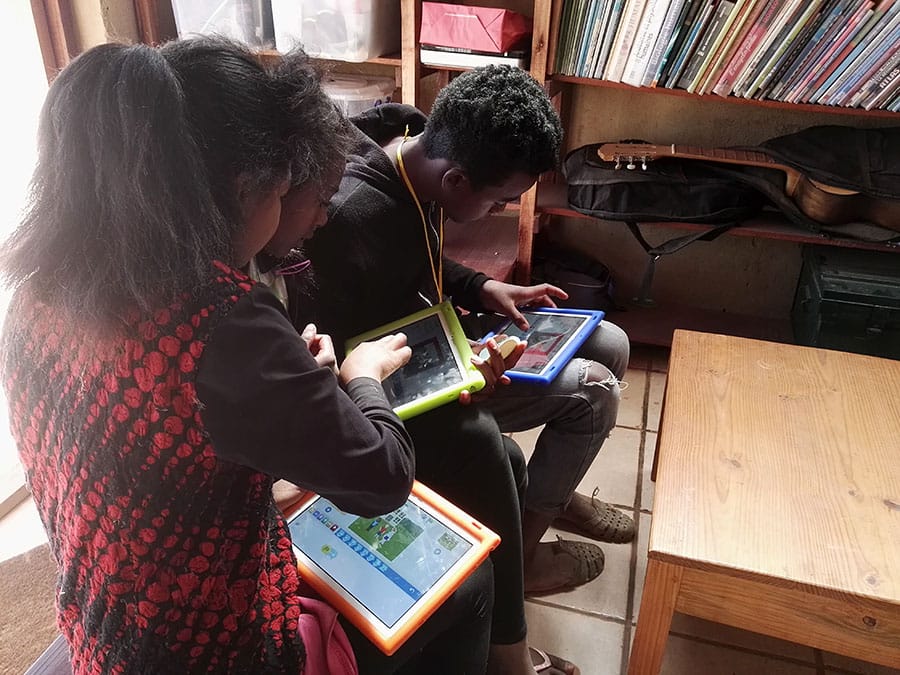
Ms. Noro: “It's now been two years since I started using tablets as a tool for learning French with her. I organize two training sessions every week to help her speak and feel better. The first thing I noticed is that this tool stimulates her brain.
For example, with the “Buttons Scissors” game application installed on the tablet, I show her how to play it and she does it all by herself. This already means that she can memorize all the steps needed to launch and play the application. Previously, it was difficult to get her to memorize words. For example, we'd learn the verb “have” in the present tense for three sessions, and she'd forget by the fourth.”
“To teach people with learning difficulties, the tablet and digital tools remain the best resources.”
“The tablet's advantage lies in its more interactive visuals and encouraging voices, making it easy to progress independently. We've tested almost all the applications on the TSF tablet, but there are only a few that are suitable and adapted to our course. This year, we used “Boutons Scissors” a lot to work on memory and “Conjugospeed” to learn conjugations, and it worked very well. If possible, I'd like to install other, more interactive applications for composing sentences.
To teach people with learning difficulties, the tablet and digital tools remain the best resources, especially in Mireille's case, as she can't write.”
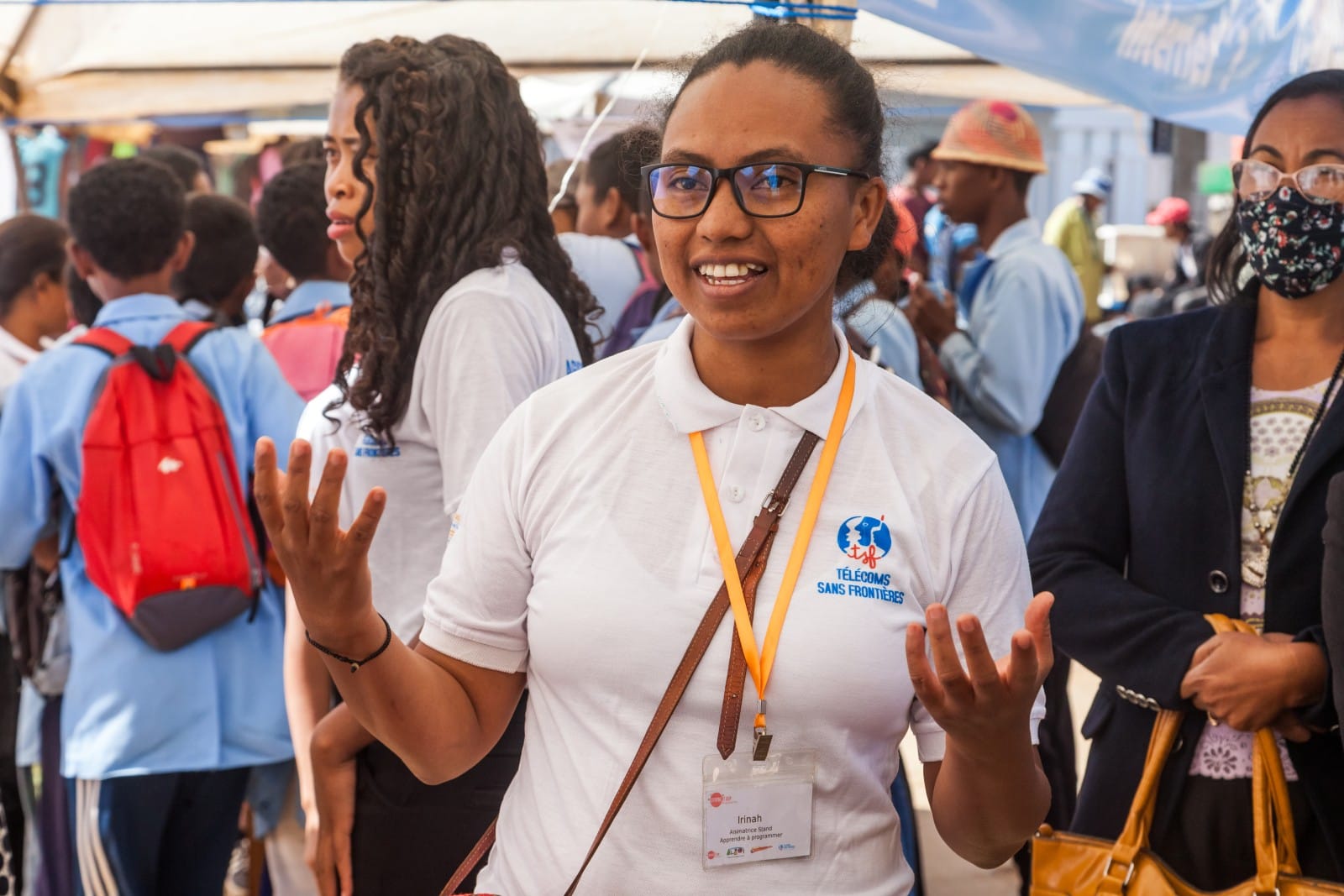
TSF has been present in Miarinarivo, Madagascar since 2012, with the goal of improving people’s living conditions by using ICTs to create social links, and encouraging safe and responsible use of technology.
Learn more about this project here:

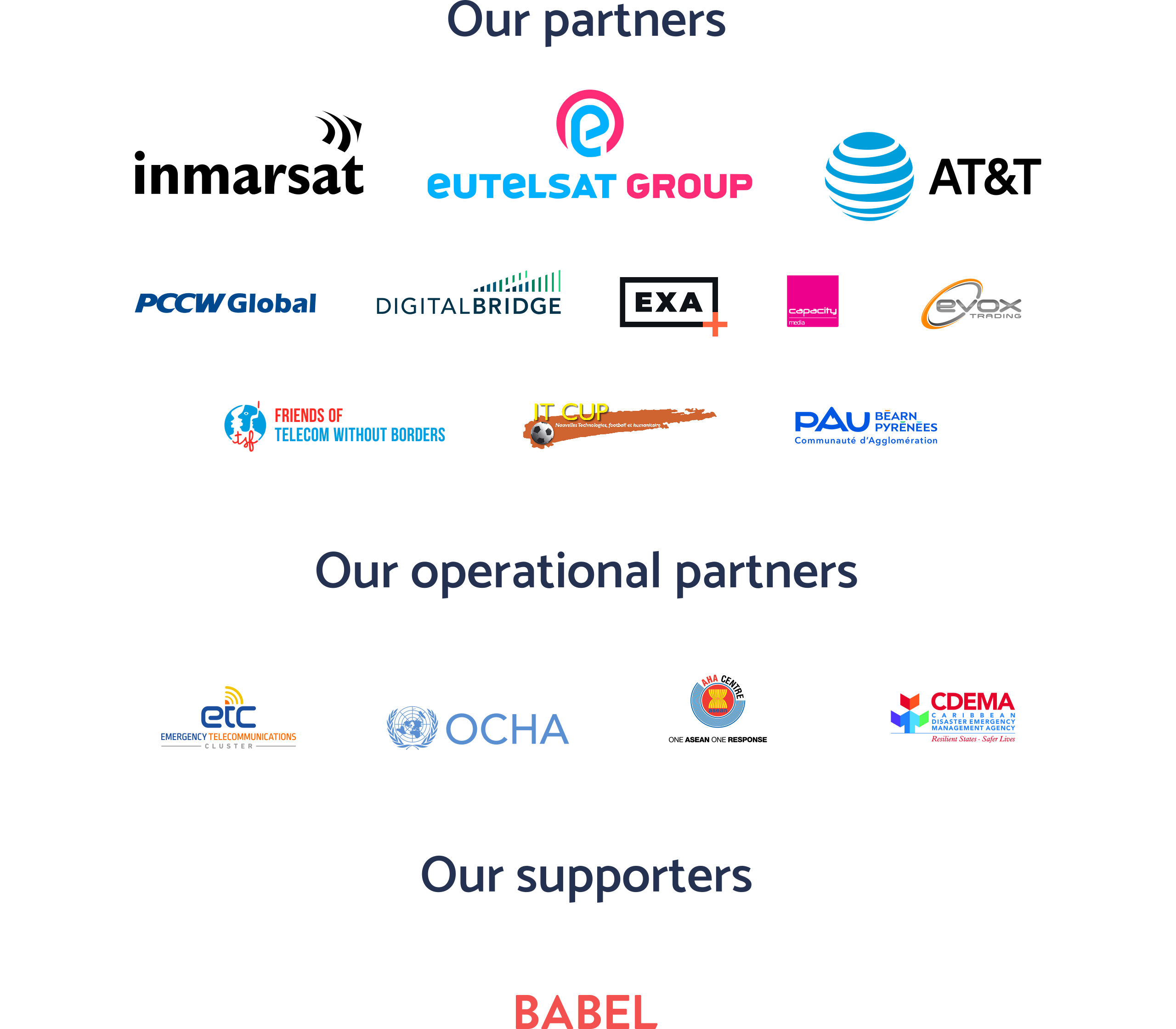


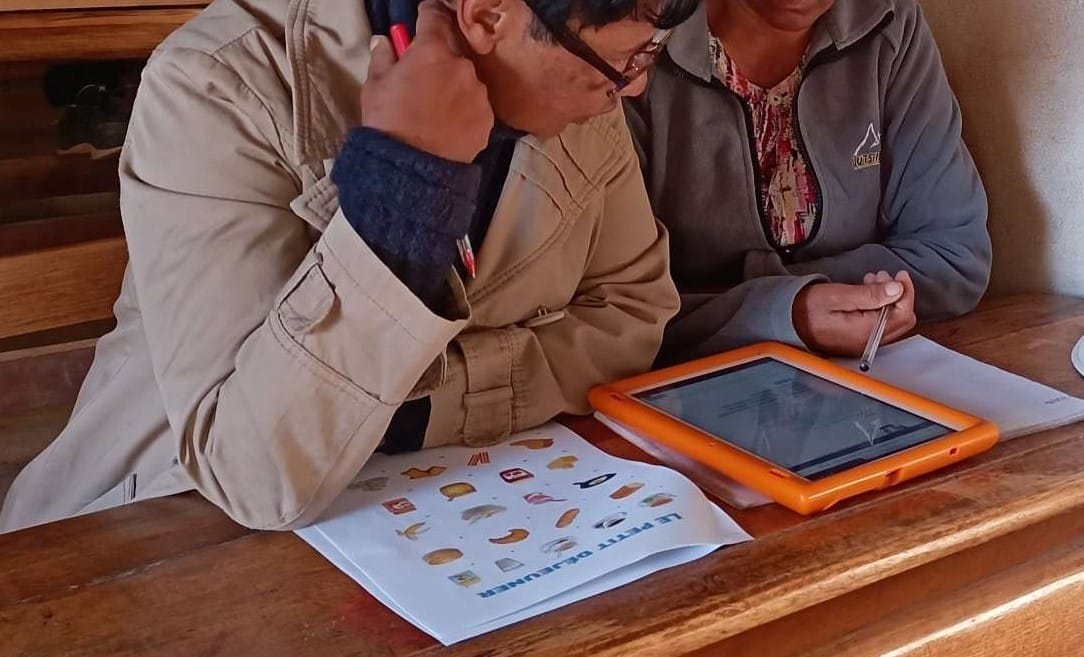



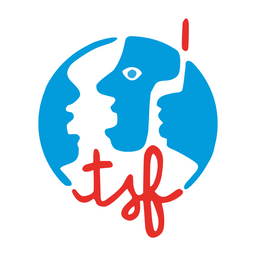

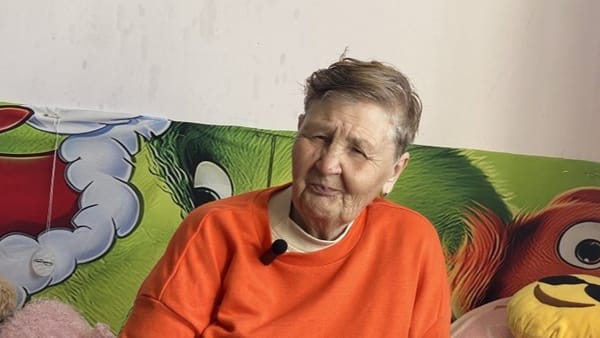
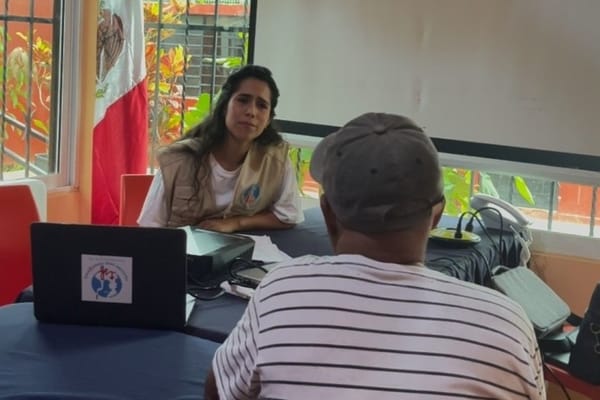

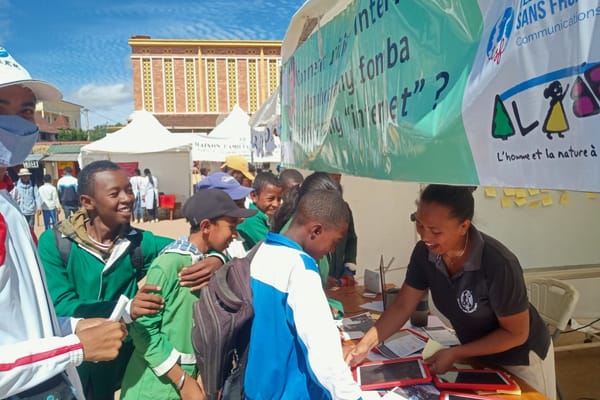
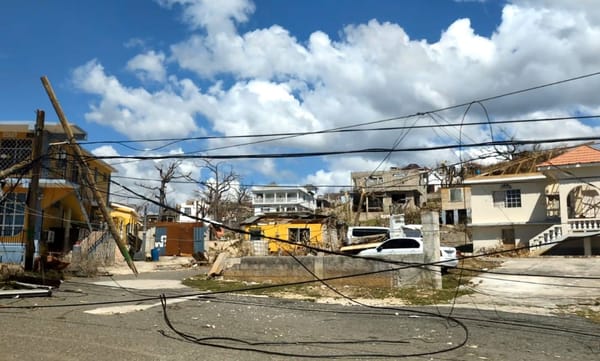
Member discussion